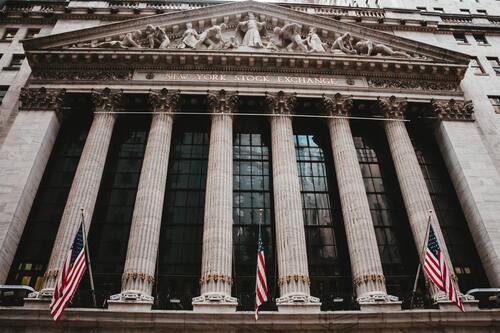Une reprise très lente de l’économie américaine
Le président de la FED, Jerome Powell a appelé les élus à tout faire pour accélérer la reprise économique afin de limiter les effets délétères d’une longue récession sur les populations les plus fragiles. Il rappelle qu’à ce jour, le Congrès a fourni près de 2900 milliards de dollars de soutien budgétaire aux ménages, entreprises, établissements de santé, États et collectivités, soit près de 14 % du produit intérieur brut. De son côté, la Banque centrale américaine a pris plusieurs mesures pour soutenir l’économie : baisse des taux, assouplissement de la réglementation pour favoriser l’octroi de prêts bancaires, injection de liquidités dans le système financier…
Malgré les efforts déployés, Jerome Powell a indiqué que la reprise de l’économie américaine serait plus lente et difficile. Le PIB des États-Unis a reculé de 4,8 % au 1er trimestre 2020, la baisse la plus importante depuis fin 2008. Les économistes prévoient une chute sans précédent au second trimestre, de 30 à 40 %.
Les salariés des grandes banques doivent s’attendre à une chute de leur bonus
La récession qui se profile va faire chuter les bonus des salariés des grandes banques américaines, précise une étude publiée le 13 mai dernier par le cabinet américain Johnson Associates. Les experts, qui s’appuient sur les résultats du 1er trimestre et les perspectives incertaines des établissements financiers, estiment que leurs rémunérations pourraient diminuer de 30 % par rapport à 2019.
Même si les scénarios peuvent encore évoluer en fonction de la rapidité de la reprise économique, les salariés dans la banque de détail resteront les plus affectés par les effets de la crise. Dans la gestion d’actifs, les hedge funds pourraient subir des baisses comprises entre -5 et -25 %, selon le rapport.
Des rémunérations variables en hausse pour les traders
Contrairement aux banquiers, les traders devraient voir leurs rémunérations variables bondir de 15 à 20 %. En effet, malgré un environnement de marché très volatil, les grandes banques américaines ont réalisé de bonnes performances au 1er trimestre par rapport à leurs homologues européennes.
Ainsi, si les traders semblent tirer profit de la crise sanitaire, ce n’est pour l’instant pas le cas des banquiers. Les établissements s’efforcent de réduire leur coût et parfois le nombre de leurs salariés. Il ressort des données compilées par le cabinet Coalition que les grandes banques d’investissement ont déjà réduit leurs effectifs de 5 % au 1er trimestre 2020.
